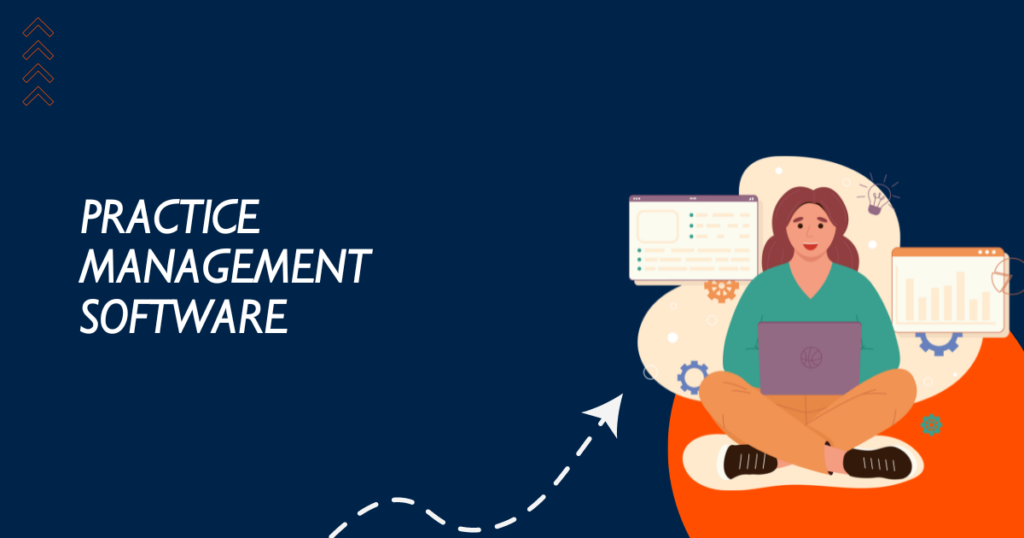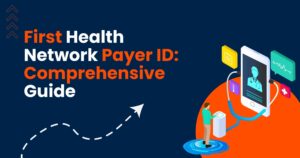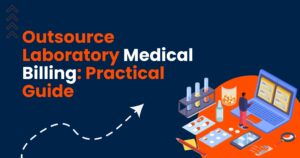Practice management software (PMS) significantly streamlines the operations of medical practices. However, what precisely is a practice management system? Medical offices specifically design a practice management system as a comprehensive instrument to manage their daily operations. It is the foundation of a well-organized practice, encompassing patient scheduling, invoicing, and beyond.
The Importance of Practice Management Software
Patient coordination software is an essential component of any medical practice management strategy. This software not only streamlines patient appointment Scheduling but also ensures seamless coordination of all patient care aspects. This translates to a reduction in time spent on administrative duties and an increase in time dedicated to patient treatment.
Types of Practice Management Software
It is essential to comprehend the various types of available systems when selecting the appropriate practice management software for your medical practice. On-premises and cloud-based solutions are the two primary categories of practice management software. Each variety provides unique benefits and may be more appropriate for particular practice environments.
1. On-Premises Practice Management Software
Your healthcare facility hosts and deploys on-premises practice management software on its servers. This traditional software deployment model is the preferable choice for practices that necessitate direct governance of their data and systems, as it provides a high level of control and security.
Key Features of On-Premises Software
- We store all data on-site, giving you complete control over security and management.
- Often, on-premises solutions offer a wider variety of customization options tailored to your practice’s specific needs.
- Local hosting of the software ensures consistent performance by removing the need for internet connectivity.
- On-premises software typically requires a single purchase, although maintenance and updates may result in additional costs.
Benefits of On-Premises Practice Management Software
- By utilizing on-site data storage, you can exert complete control over data security protocols, thereby decreasing the likelihood of security breaches.
- On-premises systems allow for more direct management of data handling protocols, giving greater control over compliance with industry regulations.
- This system is frequently more adaptable, enabling you to modify the software to satisfy the distinctive needs of your practice.
Considerations for On-Premises Software
Although there are substantial advantages to on-premises practice management software, there are also certain points to consider:
- The initial expenses for hardware, software, and installation can be substantial.
- Your practice is responsible for ongoing hardware and software maintenance, including hardware restorations and updates.
- As you scale an on-premises system, expanding your practice may necessitate an additional investment in infrastructure.
2. Cloud-based Practice Management Software
Remote servers host cloud-based practice management software, which is accessible via the internet. This contemporary method of software deployment has gained popularity as a result of its cost-effectiveness, simplicity, and adaptability.
Key features of cloud-based software
- This feature is particularly advantageous for practices with remote staff or multiple locations, as it allows for access to the software from any location with an internet connection.
- The provider is responsible for managing software updates, guaranteeing that you have access to the most recent security enhancements and features.
- Cloud-based solutions typically operate on a subscription model, which reduces the need for significant upfront investment and spreads costs over time.
- You can easily expand the software to accommodate the growth of your practice with minimal disruption and expense.
Benefits of cloud-based practice management software
Cloud-based solutions are accessible to practices of all sizes, including startups and lesser clinics, due to their lower initial costs.
- The software’s remote access feature enables you to manage your practice with greater flexibility, particularly in multi-location environments.
- Cloud-based systems frequently incorporate automatic data backups and disaster recovery capabilities, which mitigate the likelihood of data loss.
- By hosting the software off-site, your practice can reduce the necessity for in-house IT support.
Considerations for cloud-based software
Although cloud-based practice management software provides a plethora of benefits, it is crucial to take the following into account:
- Cloud-based systems are dependent on reliable internet access, and any disruptions can impact software access.
- Some organizations may harbor reservations due to the off-site storage of data, despite the majority of cloud providers implementing comprehensive security protocols.
- The initial costs are lower, and the subscription fees can accumulate over time, making it crucial to evaluate long-term expenses.
Practice Management Software: Key Features
In order to select the appropriate management software for your practice, it is necessary to comprehend the critical features that contribute to the system’s effectiveness. The following are some critical attributes to consider:
- The system facilitates the registration, cancellation, and rescheduling of appointments.
- Automates billing processes to guarantee timely and accurate payments.
- Securely stores and manages patient data, such as medical histories and treatment plans.
- The platform provides customizable reports that provide valuable insights into the practice’s performance.
- The system facilitates the verification of patient insurance information.
- EHR integration: Seamlessly integrates with EHR systems to enhance data flow.
Benefits of Using Practice Management Software
The implementation of personal patient administration software in your practice can provide a multitude of advantages that can revolutionize the manner in which you offer care:
- By automating routine tasks, healthcare providers are able to concentrate on patient care, thereby freeing up time.
- This ensures that patient care is more personalized and efficient by reducing wait times.
- Practices that automate invoicing and administrative duties can reduce operational costs.
- This ensures that your practice adheres to industry regulations while safeguarding patient data.
- The software can expand in tandem with your practice, incorporating new features and functionalities as needed.
Choosing the Right Practice Management System
When selecting the appropriate medical management software for your practice, consider the following factors:
- The software should be user-friendly, with an intuitive design that necessitates minimal training.
- Select a system that enables you to customize features to meet the unique requirements of your practice.
- Guarantee that the software provider offers comprehensive client support to address any concerns.
- Evaluate pricing plans to identify a solution that is both cost-effective and provides all essential features.
- The software should be readily compatible with other systems utilized in your practice, including electronic health records (EHR) and scheduling software for medical practices.
The future of medical practice management
Healthcare is undergoing a rapid transformation, and the tools that support it are also evolving at a rapid pace. Advanced technologies like artificial intelligence and machine learning, the future of medical practice management, will further enhance the capabilities of patient management software. These developments will facilitate even more personalized and efficient patient care, thereby establishing practices that implement these technologies at the vanguard of healthcare innovation.
Take the Next Step Toward a More Efficient Practice
Are you prepared to revolutionize your practice with state-of-the-art practice management software? Whether you are in search of a comprehensive solution or personal patient management software that is free, the time to act is now. explore our range of medical practice software, encompassing credentialing solutions, outsourcing pre-authorization, and scheduling software for medical practices, to find the best fit for your practice’s needs. We are available to assist you in your pursuit of a more patient-centered and efficient practice.




